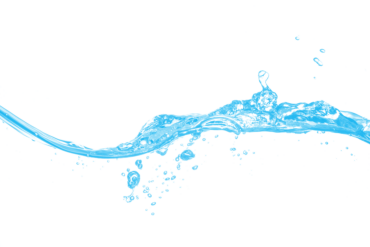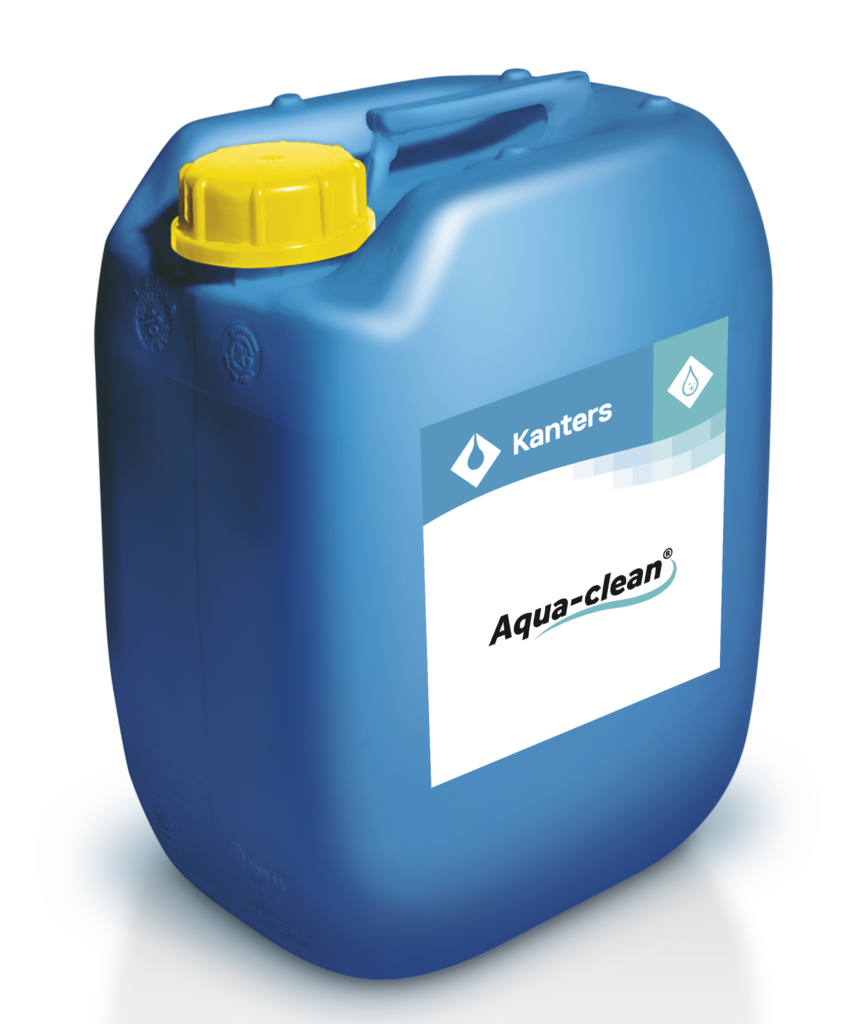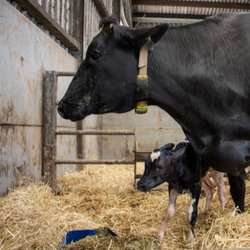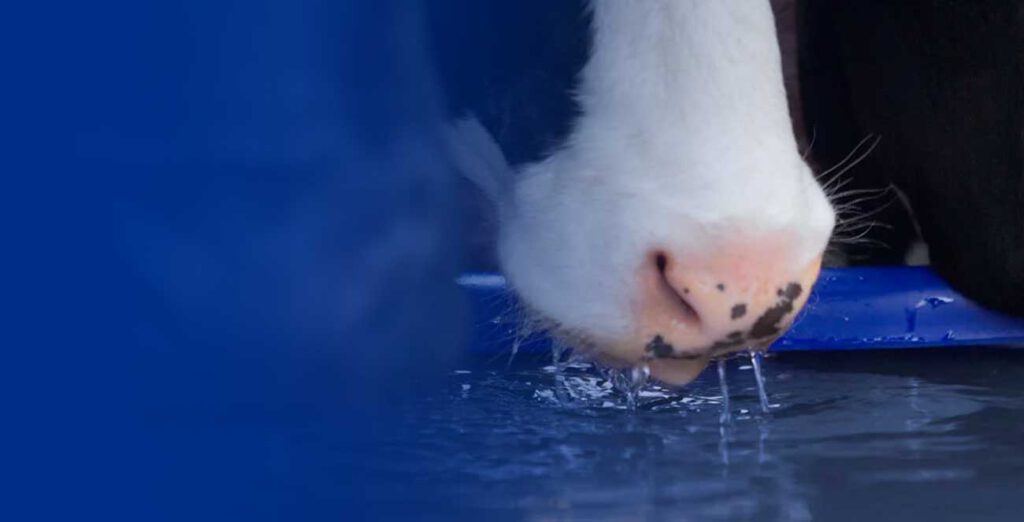Tap or bottled water is meant to be drunk. It is clean and provides us with our most precious nutrient water. Furthermore, it does not contain microbial pollution, toxins or chemical compounds. But what’s so normal in water for us humans is not often the case for the water we provide to farm animals, even though drinking water is used to provide medication and vaccinations. For optimal efficacy of such additives and optimum health of animals clean drinking water is essential. So which aspects are important for livestock farming. In other words, what is clean drinking water?
Water quality
Water quality can be divided into chemical and microbial quality.
Chemical water quality is defined by molecules such as iron, manganese, calcium and magnesium, of which the latter two are major influencers of the water hardness. A high count of iron and manganese causes sediment in the drinking lines. This is an ideal basis for micro-organisms to form a biofilm on. Calcium can result in scale formation which can cause leakages, especially around the drinking nipples. Although a surplus of molecules can cause problems, a shortage can also occur. Water that is purified from all salts and minerals, for instance after reversed osmosis, is often labeled ‘aggressive water’ for a good reason. This type of water is able to dissolve concrete. In practice, there is a correlation between such aggressive water and an increase in bone development disorders. It is hypothesized that the mineral balance within an animal is disturbed. Furthermore, due to the loss of buffering capacity, the addition of the smallest amount of organic acid (for instance applied for salmonella control or optimizing protein digestion) can dramatically lower the pH level in the water. This can lead to undrinkable water which in practice has dire consequences.

Microbial quality
Microbial quality is determined by living organisms in the drinking water. Although tap, bottled or source water may contain a low count of bacteria, a polluted drinking line system can still cause high bacterial pressure at the drinking nipples. Pathogenic bacteria are very capable of transferring an infection onto animals via drinking water. To be short; attention to microbial water quality should be focused wider than the source water alone; the drinking line system should be clean as well.
Waterspecialist
Kanters develops and produces drinking water additives. Apart from cleaning drinking lines, the company focuses mainly on providing nutrients via drinking water. Water quality is a very important aspect in this. As mentioned above, water purification systems can reduce or annihilate the buffering capacity of water. This has major consequences for instance for applying organic acid blends. A long period of water acidification can on the other hand also promote growth of certain yeasts and fungi. Kanters strives to provide tailored product usage advice to the market to ensure that additives are not added to the drinking water carelessly but water quality is always considered in choices and use of drinking water additives.
More information?
Want to know more about optimal intestinal health and how our solutions can contribute? Please call us at +31 (0) 499-425 600 or send us an e-mail to mailto:info@kanters.nl




